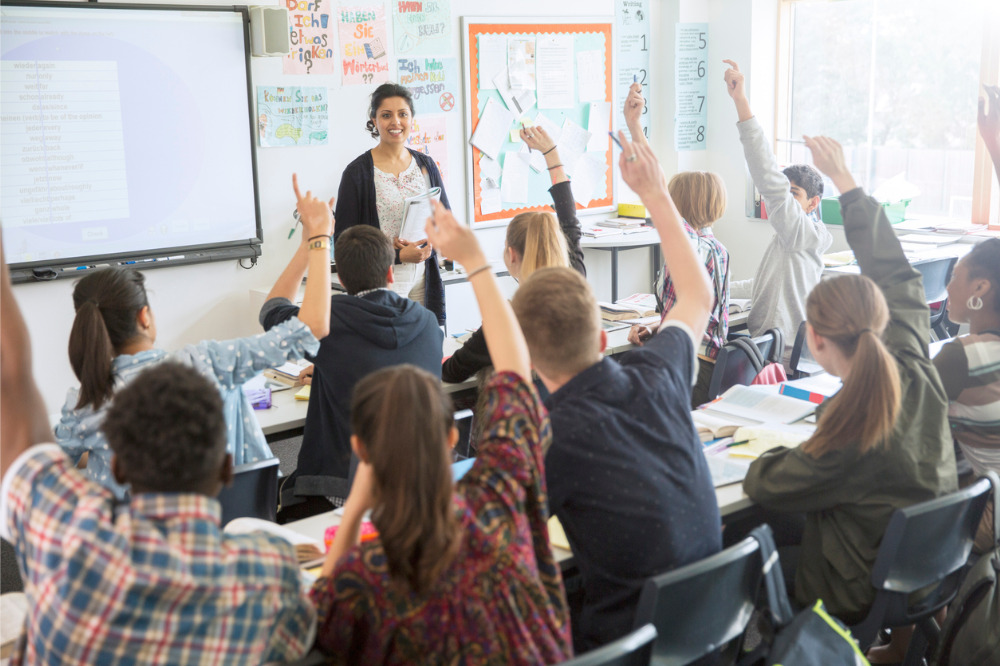
Everyone remembers a teacher who had a positive influence on their learning at school, yet the impact of that influence manifests itself in many different ways well beyond the school gates.
However, these teachers often don’t get to see the most powerful fruits of their labour – something that could be a profound morale booster for those who tirelessly dedicate their lives to this all-important profession in the pursuit of changing lives for the better. What’s more, many teachers feel underappreciated by society.
Recognising this, a recent U.S study sought to uncover the characteristics of educators who leave a lasting impression beyond the classroom, finding that 84% had more good than bad teachers, highlighting the positive experiences most students have with their educators.
The study, which surveyed 996 people, was conducted by Preply, an online language learning marketplace, connecting tutors to hundreds of thousands of learners in 180 countries worldwide.
One of the most notable findings was that 61% said they have never told their favourite teacher how much they meant to them, suggesting a potential gap in recognition and appreciation for teachers' efforts.
Sylvia Johnson, Language Expert at Preply said the study highlights the importance of schools, communities and governments better recognising and celebrating the contributions of teachers, not only to improve their morale but also to make them aware of their positive, lasting impact on students' lives.
“Open dialogue, recognition, and dedicated feedback channels can create a culture in which tutors not only know they are valued, but they can also see their positive impacts reflected in their learners,” Johnson told The Educator.
“Acknowledging teachers can be as simple as regular communication of gratitude from leaders, public testimonials from students, and platforms for showcasing their achievements. Teacher Appreciation Days or a 'Thank you note' activity can impart a personal touch to this recognition.”
A solid bedrock for learning
When asked how schools can foster deeper connections between teachers and students, Johnson said creating a positive school climate based on strong relationships provides a solid bedrock for learning.
“Schools can facilitate deeper connections via mentorship programs, interactive projects, or extracurricular activities, allowing learners and tutors to engage on a personal yet respectful level,” she said.
“Teachers, maintaining professionalism, can form meaningful relationships with students through active listening, genuine empathy, and a focus on their educational growth.”
Johnson said schools can also reduce class size and encourage teachers to accompany learners through more than one academic year.
“Essentially, the education system needs to prioritise the development of habits, skills, and mindsets that build learners’ social, emotional, and academic competence.”
‘Effective teaching doesn’t fit all’
For teachers looking to adapt their teaching methods to meet the varied learning preferences and needs of their students, Johnson pointed to the importance of diversified instruction, which she said forms the cornerstone of effective teaching.
“Teachers can conduct learning style assessments or needs analysis, observe student responses, engage in one-on-one discussions, or employ flexible teaching strategies to discern individual learning preferences,” she said.
“As a guiding principle, students want to learn things that connect directly to their own lives. Effective teaching takes into account what learners already know, and then builds on that foundation, meeting them at their current level of understanding.”
Johnson noted that some learners will benefit from inquiry-based learning, which fosters curiosity and self-paced exploration.
“This method benefits independent and analytical thinkers who relish problem-solving,” she said. For those students who prefer experiential learning, teachers can promote hands-on activities, labs, and real-world simulations to make abstract concepts tangible.”
For students who thrive on debates, group projects, and class discussions, Johnson said a more interactive learning pedagogy can be utilised effectively.
“In essence, effective teaching doesn't fit all; where possible, it should shape and mold itself to cater to each unique learner.”


